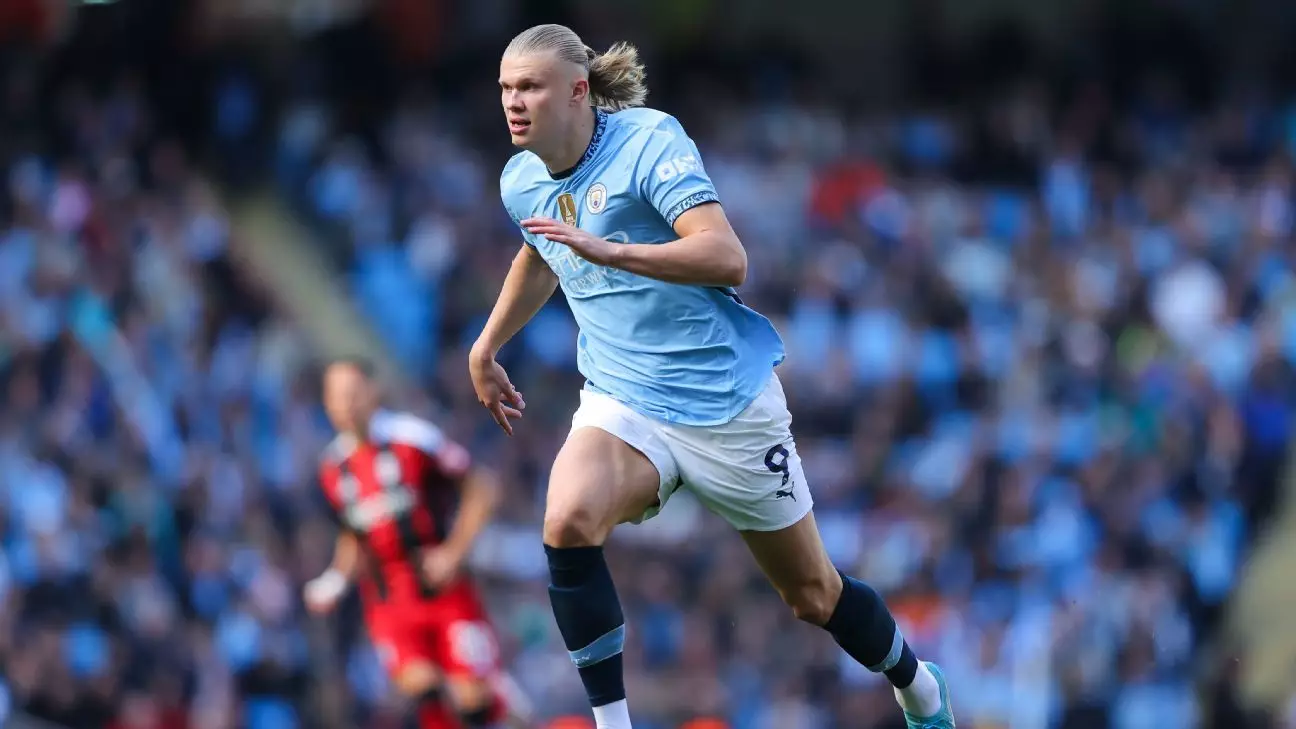The Premier League has always been a showcase of talent, not only in terms of skill and strategy but also in athletic prowess, particularly speed. With the unveiling of the league’s fastest players, we gain insight into how velocity affects game play and player contributions. This season, Erling Haaland of Manchester City has made headlines, recording a remarkable top speed of 35.7 km/h. Such statistics, sourced from reputable entities like BBC Sport and Opta, highlight the significance of speed in modern football, not just as an isolated metric but as a critical component of a player’s effectiveness on the pitch.
Top of the Speed Charts: Analyzing the Leaders
Despite Haaland’s impressive speed, he is bested by Tottenham Hotspur’s Micky van de Ven, who has peaked at an astonishing 37.1 km/h this season. This places him as the quickest player in the league, demonstrating how a swift player can alter the dynamics of a match. An exemplary moment for van de Ven was during a match against Manchester United, where he sprinted down the field to assist in a goal, substantially contributing to his team’s victory. Such actions highlight how speed can be a game-changer, facilitating defense-to-attack transitions that are critical in high-stakes matches.
Following van de Ven, Wolves winger Carlos Forbs and Nottingham Forest’s Anthony Elanga are noteworthy mentions with top speeds of 36.6 km/h and 35.9 km/h respectively. Their positions in the speed rankings underscore the importance of wing players in current formations, where quick transitions and pace down the flanks can unlock defenses. This reality emphasizes the tactical decisions managers must make when utilizing players based on their attributes, including speed.
The Changing Landscape of Premier League Speedsters
Interestingly, traditional speed demons are experiencing shifts in their rankings. Kyle Walker, renowned for his blinding pace, has seen a significant dip, now ranking 80th in the league for speed this season. This downturn may hint at either tactical adjustments by Manchester City or an indication of how rapidly the game evolves, with new players emerging as significant competitors. It begs the question: Do age and experience fatigue a player’s speed, or do new methodologies in training breed faster talents?
In terms of contributions from other teams, Gabriel Martinelli of Arsenal and Alejandro Garnacho of Manchester United are making their mark, with top speeds of 35.6 km/h and 35.5 km/h. Their performance is indicative of a growing trend in youth players making significant impacts in what may have been previously dominated by more experienced players.
The data overall demonstrates that speed remains a crucial element in the contemporary game of football. As teams increasingly adopt more dynamic and fast-paced playing styles, understanding and leveraging speed on the pitch will continue to redefine strategies and influence competitive outcomes. As the season unfolds, the contributions of these rapid players will surely become more integral to their teams’ successes and a focal point of analysis for fans and analysts alike. Consequently, speed in football is not just a statistic; it embodies an evolving narrative of talent and adaptation in the Premier League.

Leave a Reply